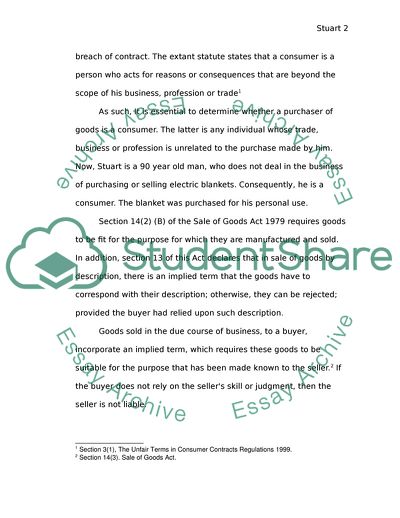Cite this document
(Sale of Goods Act as inserted by the 1994 Act Case Study, n.d.)
Sale of Goods Act as inserted by the 1994 Act Case Study. Retrieved from https://studentshare.org/law/1730885-advise-stuart
Sale of Goods Act as inserted by the 1994 Act Case Study. Retrieved from https://studentshare.org/law/1730885-advise-stuart
(Sale of Goods Act As Inserted by the 1994 Act Case Study)
Sale of Goods Act As Inserted by the 1994 Act Case Study. https://studentshare.org/law/1730885-advise-stuart.
Sale of Goods Act As Inserted by the 1994 Act Case Study. https://studentshare.org/law/1730885-advise-stuart.
“Sale of Goods Act As Inserted by the 1994 Act Case Study”. https://studentshare.org/law/1730885-advise-stuart.


